Related Research Articles

Irving Berlin was an American composer and songwriter. His music forms a large part of the Great American Songbook. Berlin received numerous honors including an Academy Award, a Grammy Award, and a Tony Award. He also received the Presidential Medal of Freedom from President Gerald R. Ford in 1977. Broadcast journalist Walter Cronkite stated he "helped write the story of this country, capturing the best of who we are and the dreams that shape our lives".
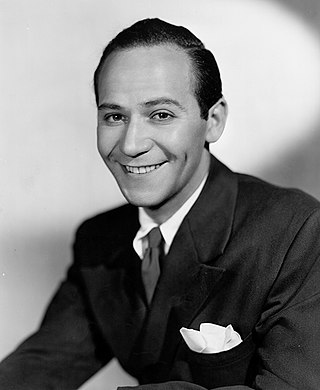
Frank Henry Loesser was an American songwriter who wrote the music and lyrics for the Broadway musicals Guys and Dolls and How to Succeed in Business Without Really Trying, among others. He won a Tony Award for Guys and Dolls and shared the Pulitzer Prize for Drama for How to Succeed. He also wrote songs for over 60 Hollywood films and Tin Pan Alley, many of which have become standards, and was nominated for five Academy Awards for best song, winning once for "Baby, It's Cold Outside".

Lew Brown was a lyricist for popular songs in the United States. During World War I and the Roaring Twenties, he wrote lyrics for several of the top Tin Pan Alley composers, especially Albert Von Tilzer. Brown was one third of a successful songwriting and music publishing team with Buddy DeSylva and Ray Henderson from 1925 until 1931. Brown also wrote or co-wrote many Broadway shows and Hollywood films. Among his most-popular songs are "Button Up Your Overcoat", "Don't Sit Under the Apple Tree", "Life Is Just a Bowl of Cherries", "That Old Feeling", and "The Birth of the Blues".

Walter Donaldson was a prolific American popular songwriter and publishing company founder, composing many hit songs of the 1910s to 1940s, that have become standards and form part of the Great American Songbook.
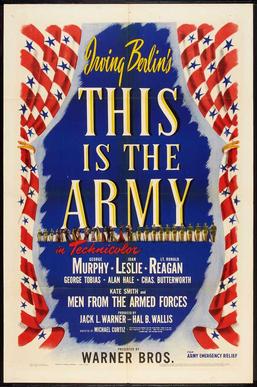
This Is the Army is a 1943 American wartime musical comedy film produced by Jack L. Warner and Hal B. Wallis and directed by Michael Curtiz, adapted from a wartime stage musical with the same name, designed to boost morale in the U.S. during World War II, directed by Ezra Stone. The screenplay by Casey Robinson and Claude Binyon was based on the 1942 Broadway musical written by James McColl and Irving Berlin, with music and lyrics by Berlin. Berlin composed the film's 19 songs, and sang one of them.
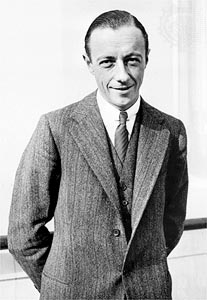
Vincent Millie Youmans was an American Broadway composer and producer.

Ross S. Bagdasarian, known professionally by his stage name David "Dave" Seville, was an American singer, songwriter, record producer, and actor best known for creating the cartoon band Alvin and the Chipmunks. Initially a stage and film actor, he rose to prominence in 1958 with the songs "Witch Doctor" and "The Chipmunk Song ", which both became Billboard number-one singles. He produced and directed The Alvin Show, which aired on CBS in 1961–62.

Michael Brown was an American composer, lyricist, writer, director, producer, and performer. He was born in Mexia, Texas. His musical career began in New York cabaret, performing first at Le Ruban Bleu. In the 1960s, he was a producer of industrial musicals for major American corporations such as J.C. Penney and DuPont. For the DuPont pavilion at the 1964 New York World's Fair, Brown wrote and produced a musical revue, The Wonderful World of Chemistry staged 48 times a day by two simultaneous casts in adjacent theaters. For years, he maintained a reunion directory of the cast and crew, which included Robert Downey, Sr. as a stage manager. 2005 mailing: “After all, it was a remarkable time in all of our lives. We can be fairly certain nothing like it will be seen again. Love all round, Mike.” Several of his songs have entered the American repertoire, including "Lizzie Borden" and "The John Birch Society," which were popularized by the Chad Mitchell Trio. Children know him best as the author of three Christmas books about Santa's helper, Santa Mouse.

Broadway Melody of 1938 is a 1937 American musical film produced by Metro-Goldwyn-Mayer and directed by Roy Del Ruth. The film is essentially a backstage musical revue, featuring high-budget sets and cinematography in the MGM musical tradition. The film stars Eleanor Powell and Robert Taylor and features Buddy Ebsen, George Murphy, Judy Garland, Sophie Tucker, Raymond Walburn, Robert Benchley and Binnie Barnes.
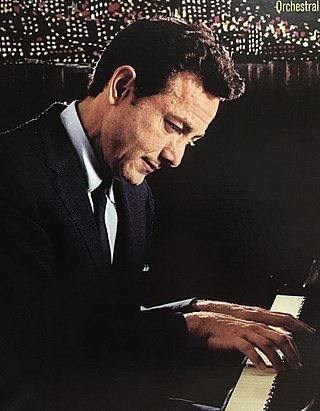
Joseph "Joe" Bushkin was an American jazz pianist.
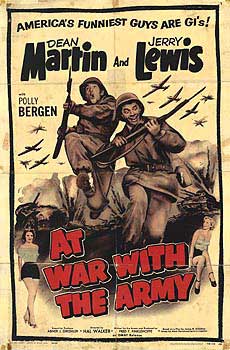
At War with the Army is a 1950 American musical comedy film directed by Hal Walker, released by Paramount, starring the comedy team of Martin and Lewis and introducing Polly Bergen. Filmed from July through August 1949, the film premiered in San Francisco on New Year's Eve 1950, before opening nationwide on January 17, 1951. It was re-released in 1958 by OMAT Pictures.
"I'll Be Seeing You" is a popular song about missing a loved one, with music by Sammy Fain and lyrics by Irving Kahal. Published in 1938, it was inserted into the Broadway musical Right This Way, which closed after fifteen performances. The title of the 1944 film I'll Be Seeing You was taken from this song at the suggestion of the film's producer, Dore Schary. The song is included in the film's soundtrack.
Walter Kent was an American composer and conductor. Some notable compositions are: "I'll Be Home for Christmas", "I'm Gonna Live Till I Die" and "(There'll Be Bluebirds Over) The White Cliffs of Dover".

"Frenesí" is a musical piece originally composed by Alberto Domínguez Borrás for the marimba, and adapted as a jazz standard by Leonard Whitcup and others.

Winged Victory is a 1943 play by Moss Hart, created and produced by the U.S. Army Air Forces during World War II as a morale booster and as a fundraiser for the Army Emergency Relief Fund. Hart adapted the play for a 1944 motion picture directed by George Cukor.
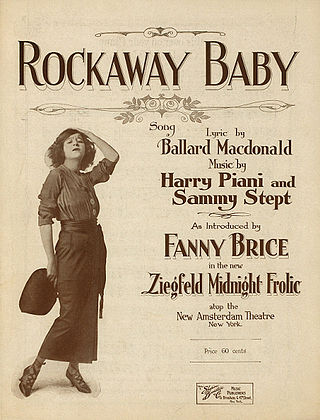
Samuel Howard Stept was an American songwriter who wrote for Broadway, Hollywood and the big bands. He became known simply as Sam Stept or Sam H. Stept – he rarely used his full middle name.

George Michael Cohan was an American entertainer, playwright, composer, lyricist, actor, singer, dancer and theatrical producer.

The Human Comedy is a 1943 American comedy-drama film directed by Clarence Brown. It began as a screenplay by William Saroyan, who was expected to direct. After Saroyan left the project, he wrote the novel of the same name and published it just before the film was released. Howard Estabrook was brought in to reduce the run time to two hours. The picture stars Mickey Rooney, Frank Morgan, James Craig, Marsha Hunt, Fay Bainter, Ray Collins, Van Johnson, Donna Reed and Jackie "Butch" Jenkins. Barry Nelson, Robert Mitchum and Don DeFore appear together as boisterous soldiers in uncredited supporting roles.
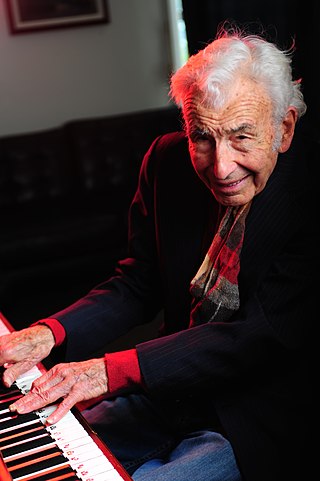
Philip Springer is an American composer, best known for co-writing the classic Christmas song "Santa Baby". In a musical career spanning over 70 years, he is credited in 540 musical pieces, including composing songs for numerous well-known singers. He still writes about 35 songs per year.
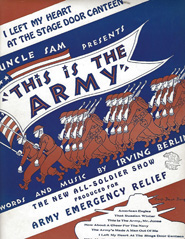
This Is The Army is an American musical revue in two acts, designed to boost morale in the U.S. during World War II, with a book by James McColl and music and lyrics by Irving Berlin. It was produced by the U.S. Army on Broadway in 1942, with a cast of U.S. soldiers, for the benefit of the Army Emergency Relief Fund.